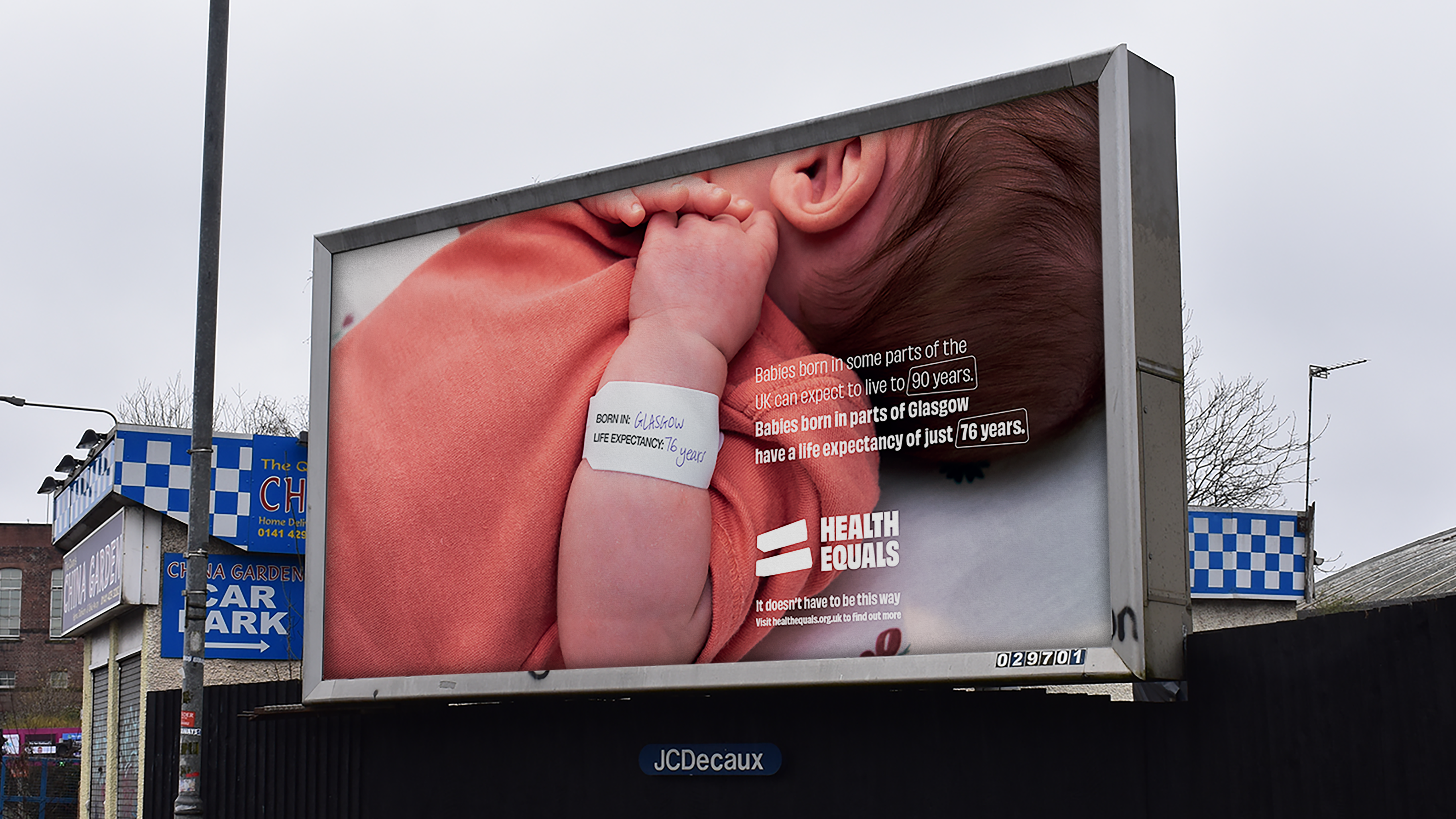New First Minister must tackle Scotland’s health inequalities
As Humza Yousaf takes on the role as First Minister of the Scottish Government, his background as Health Secretary will provide a good working knowledge of the issues at play affecting health in Scotland. The First Minister inherits a government that has taken ambitious steps to reduce health inequalities; however, there is clearly much more to be done.
Health Equals launched our #LivesCutShort campaign in March 2023, aiming to bring attention to the inequalities in how long we can expect to live based on where we live.
The vast differences in life expectancy across the population do not get the public attention they deserve. In Glasgow the average life expectancy is 76 – for some people born in different parts of Scotland the average life expectancy is up to 82. This was viscerally conveyed through our recent billboard in Glasgow. It doesn’t have to be this way but only through raising awareness will people have the knowledge to challenge the status quo and focus on what needs to change. And in this instance, change really is a matter of life and death.
The Scottish Government has a stated aim is to ‘reduce the health gap between the most deprived community and our wealthiest.’ So why is it that, despite efforts of successive governments, since 2013, expectations of how long people are expected to live in Scotland have reduced by 4.4 years, from 90.4 to 86 years overall?
Following our campaign launch, Foysol Choudhury MSP asked parliament the important question – what action it will take to tackle these health inequalities? In his statement to parliament on April 18, Humza Yousaf committed to several policies to improve the health outcomes of those in Scotland and start to ‘close the gap’ across the population.
One of these was the Human Rights (Scotland) Bill which would increase equity within several of what we refer to as the ‘building blocks of health’. It would create the right to adequate food and housing which would increase, not only the dignity of communities, but the health and overall life expectancy of communities too.
Yousaf re-committed to the Scottish government expanding free school meals and announced that he would hold an anti-poverty summit, making tackling poverty a priority.
These commitments come on top of existing action by the Scottish Parliament to view and tackle health inequalities through a joined-up approach. In 2009 they recommended that ‘sicknotes’ be replaced with ‘fit notes’, a move that showed the government had taken steps to recognise the importance of viewing work and health through the same lens.
The Fairer Scotland Duty came into force in 2018 providing guidance to public sector bodies to ‘help them actively consider how they can reduce inequalities of outcome caused by socio-economic disadvantage, when making strategic decisions’.
Taken together, these are good steps forward but we are yet to see determined action bringing the different building blocks of health together through a programme of cross-government priorities.
The Health Foundation’s Leave No One Behind report on health inequalities in Scotland found that the persistence of health inequalities is related to three underlying factors: the accumulation of severe multiple disadvantage (such as low income and poor living conditions); a lack of improvement in living standards; and, the effects of austerity on public services.
To acknowledge that the world around us impacts our health, and multiple experiences, policies, and living conditions are reflected in our overall life expectancy, is no small ask. Acknowledging this means that to improve health we must look beyond individual issues and fixes and towards a coordinated whole-system approach to health.
Leading this work, bringing along the public, businesses, and the voluntary sector, needs a real push but one that would result in long lasting and life changing impacts for the people of Scotland.
It is not the Scottish government’s sole responsibility to boost the health of the nation and close the life expectancy gap; but expanding on some progressive groundwork to view health through the lens of wider social, economic, and environmental issues could be Humza Yousaf, and his new cabinet’s new offering to Scotland. Leading this work, bringing along the public, businesses, and the voluntary sector, needs a real push but one that would result in long lasting and life changing impacts for the people of Scotland.
Health Equals looks forward to further stimulating the conversation for progressive change in Scotland.





